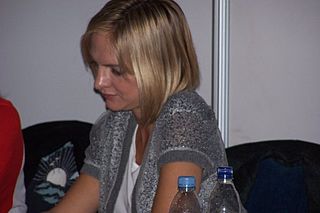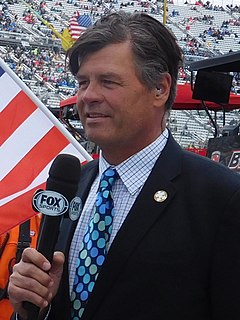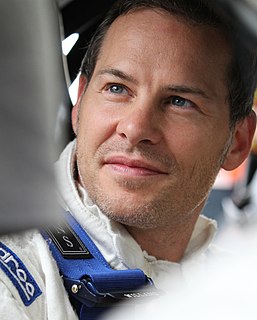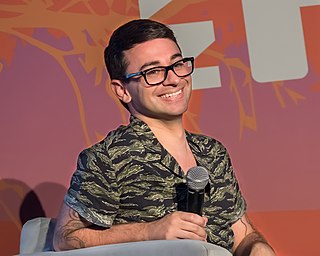A Quote by Boti Bliss
In the '60s and '70s people were a little bit more naive and trusting and got in people's cars without thinking about it.
Related Quotes
Your assumptions about the lives of others are in direct relation to your naïve pomposity. Many people you believe to be rich are not rich. Many people you think have it easy worked hard for what they got. Many people who seem to be gliding right along have suffered and are suffering. Many people who appear to you to be old and stupidly saddled down with kids and cars and houses were once every bit as hip and pompous as you.
I'm not familiar particularly with Hillary Clinton's neighborhood, but I wish people were a little bit more curious about what we call privilege and about why it's there. Black people in this country have no choice but to be curious. We have to know. I wish folks would do a little bit more investigation.
I built my team with Dale in mind. He lives with me. He's part of who I am because I just appreciated who he was and how he went about things. People worked on his cars at Dale Earnhardt Incorporated before I got there. When Dale would walk by you could just tell people were thinking, 'these are Dale Earnhardt's cars.'
I grew up in Texas, and people love their American-made muscle cars there. I grew up around people who loved cars and took care of cars and my dad's a big car nut, so I learned a little bit about cars - how to love them, most importantly. I think that from the time I could remember, I've always envisioned myself in a vintage muscle car.
I'm old-fashioned. I think William Blake and people in the Renaissance people were multi. Look at da Vinci, he was involved in science; and Michelangelo was dabbling in poetry. Both of them were painters and sculptors but they also involved themselves with architecture. I honestly don't know what happened in the '60s and '70s. If you sang rock and roll in America at that time or were involved in expressing yourself through music like that, then many thought you couldn't possibly be an artist. That thinking is archaic.
We all are born with a certain package. We are who we are: where we were born, who we were born as, how we were raised. We're kind of stuck inside that person, and the purpose of civilization and growth is to be able to reach out and empathize a little bit with other people. And for me, the movies are like a machine that generates empathy. It lets you understand a little bit more about different hopes, aspirations, dreams and fears. It helps us to identify with the people who are sharing this journey with us.
I've been really into a light, bright playfulness that's been missing. I looked at these '60s and '70s photos of Jackie O. She went to Capri every summer, but she was always a little more playful, a little more colorful, than she was in 'normal' life. And it was exciting to see her a little bit "off duty." The colors are from awning stripe umbrellas, from a really clear ocean, and from ripe citrus.
If you've got a restaurant, you definitely want the line to be out the door the first night, but you're more interested in people continuing to come to the restaurant. And that's their outlook, a little bit. I think it allows for more creativity, in the process. It allows people to make interesting programming that maybe wouldn't have a place on broadcast networks, if you were just counting people.




































